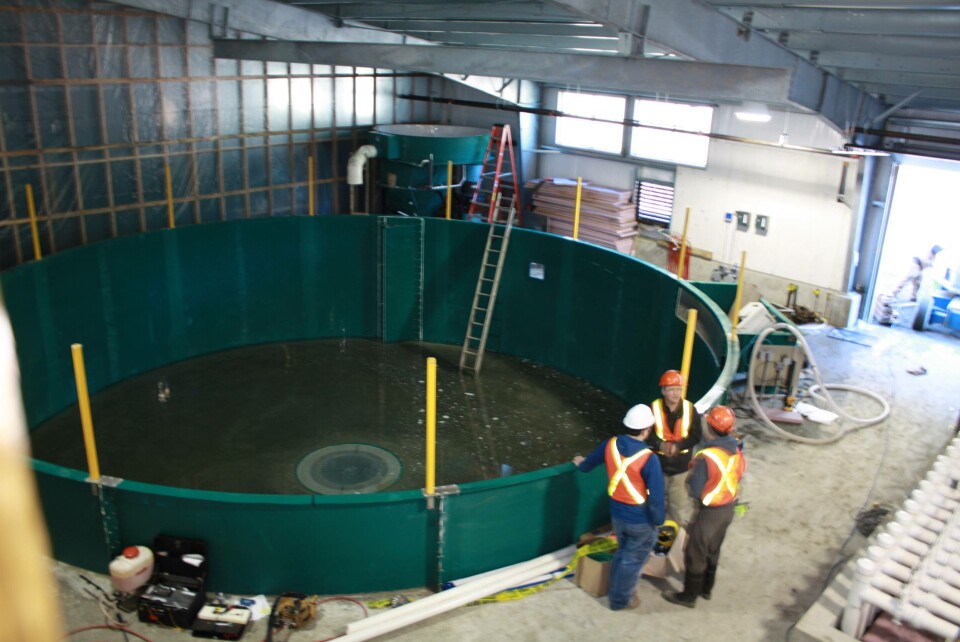
Promising results for land-based salmon farm
The farm is located just south of Port McNeill, by the Nimpkish River, and belongs to the ‘Namgis First Nation. It was built as the first of five modules, and draws water from fresh wells that can have up to 5% salinity. The facility was largely funded by the Canadian government and US-based philanthropic organizations.
No actual cost of production figures have been released at this point, but earlier estimates suggested a cost of CAD$6.22 (€4.32) per kilo dressed, head-on, but that estimate did not include the cost of depreciation of the almost CAD$ 9 million (€6.3 million) in construction costs for the first module, which was expected to produce some 470 tonnes of salmon per year. If this cost was amortized over a twenty year life span, it would add another dollar per kilo to the planned production of 470 tonnes per year. But if the annual production was actually only 180 tonnes, this cost would be CAD$ 2.50 (€1.74) per kilo.
The company sold its first fish to Safeway a year ago and was initially selling its salmon mainly in Safeway's BC and Alberta stores. A year later, production has increased, Safeway sales have expanded eastward to Manitoba, and Kuterra's marketing partner Albion Fisheries sells the salmon to select stores and fine-dining restaurants across Canada and the US.
"With any emerging technology, there is a learning curve,” says Kuterra's CEO Garry Ullstrom. "We're almost through commissioning the technology, and our key performance indicators are improving with every harvest. We continue to learn, and we're refining our understanding of the optimal conditions for growing our fish.”
The company claims to have "already has dispelled many myths about land-based Atlantic salmon aquaculture", by producing a high-quality, sustainably farmed premium salmon using very little energy, water or land, without antibiotics or pesticides.
Kuterra has also achieved the top "Best Choice" sustainability ranking by Ocean Wise, SeaChoice and Seafood Watch - a first for farmed Atlantic salmon.
"The premium price is exceeding our expectations," says Ullstrom. "And demand is exceeding our capacity to produce fish. This is very rewarding and puts the focus on optimizing fish performance and planning for expansion."
The next goal is to keep refining the system and use that knowledge to reduce capital costs for a second production facility. Kuterra will report on what it's learning at an Aquaculture Innovation Workshop in October 2015.




















































